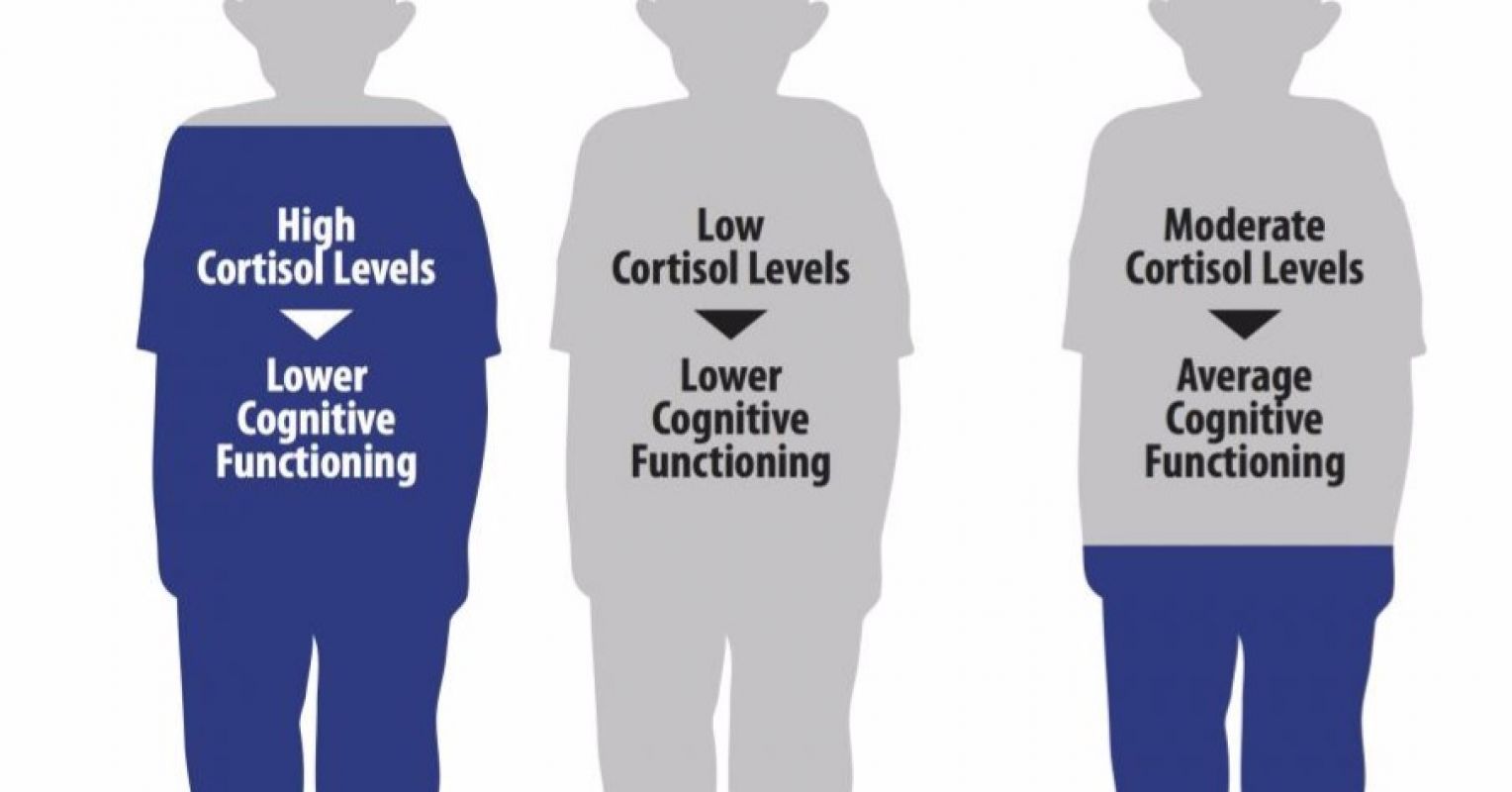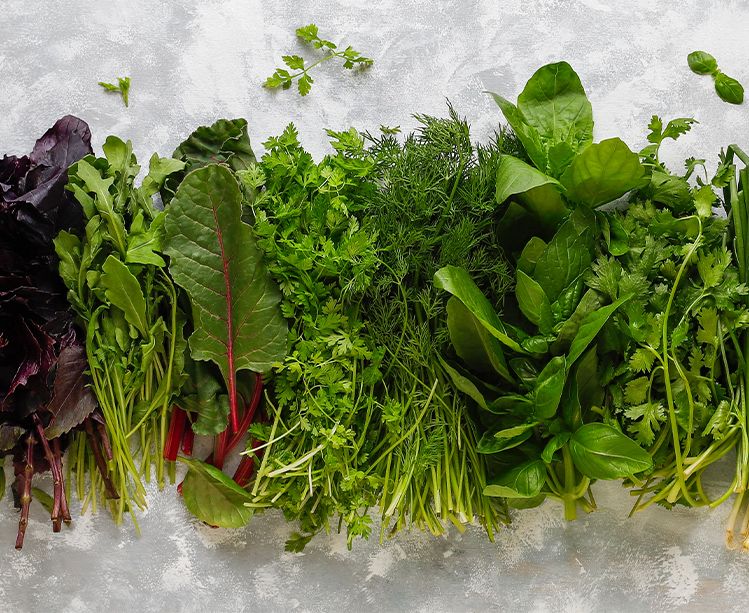Anti-Stress Foods: Eat To Beat Stress & Anxiety Naturally
Do you know about stress-relieving foods? Read to find out the best foods for stress relief.

We all have stress for one and another reason. How we handle it makes all the difference. Too much stress is bad for everyone as it can lead to many other health issues, such as diabetes, high blood pressure, heart disease, obesity, etc. Stress seriously affects our physiological and psychological responses. Often, our body stops normal functioning and disturbs the digestive and immune systems.
In need of stress relief? Here, we will let you know about food items that can help manage stress effectively.

Stress Affects Your Eating Pattern Badly
Stress disturbs your overall eating pattern. Either you will become an under-eater or over-eater aside from having a negative impact on your overall well-being. Stress directly hit the body's energy level and the use of calories. If you are not having a nutritious diet, deficiency happens and this leads to a number of chain health issues (as mentioned above).
· Stressed body demands more energy, oxygen, and nutrients so stressed people crave more for foods that are high in calories, sugar, and fat like processed snacks and sweets, etc. 1
· Stress interrupts sleep and sleep deprivation is itself a stressor. It causes a significant increase in cortisol levels that can lead to persistent high blood sugar (hyperglycemia).
· Stress leads to fatigue and people lack the motivation to prepare and eat something healthy. Sometimes, they even forget to eat their meals.
Physical Conditions Linked to Stress
Uncontrolled stress makes it difficult to get through your day. You feel mentally exhausted and emotionally underprivileged. If you are not able to manage your stress, it may lead to an anxiety disorder or depression over time. It also causes a sudden boost of hormones, leading to various health issues like;
· Indigestion
· Heartburn
· Chest Pain
· Diarrhea or constipation
· High blood pressure
· Cardiac issue
· Weight gain
· Weak immunity
· Muscular pain
· Sleep disorder or insomnia
· Anxiety
· Depression etc.
Too Much Stress? Beware Your Levels of Cortisol 2
Cortisol, which is also called the stress hormone, is produced and released by your adrenal gland. It surges glucose in the bloodstream and enhances your brain's use of glucose. Cortisol directly or indirectly affects every tissue and organ of your body as its drop and rise are directly linked to your stress level. Normally, its level varies throughout the day as per your situation. For example, it should get back to normal like other body systems (blood pressure and heart rate, etc.) after the danger has passed. Cortisol hormones are released in response to stress so that your body can respond appropriately. If you have high or less levels of cortisol for a prolonged time, it affects your mind, motivation, and stress. However, your foods can also help control stress by reducing inflammation and cortisol levels in your body.

In Need of Stress Relief?
The answer might be in your diet. Correct eating can be an effective technique against stress. It enhances your body’s ability to control stress hormones by strengthening the immune system. Yet, most of us don’t really know that some foods can help to relieve stress and support the body in recovering from it. These foods help in calming brain chemicals and controlling the level of stress hormones.
Fact
"Stress can increase your need for nutrients like vitamin B, Vitamin C, magnesium, and selenium."
Read the Journal of Nutrition & Food Science for a detailed review.
Stress-Relieving Foods to Add To Your Diet
1. Green leafy Vegetables
Go green when stressed! Many studies found that green leafy vegetables help to produce a pleasure chemical in your brain helping to have a positive mood the next day. For example, spinach, known as a cocktail of all the greens is a rich source of magnesium, vitamins C and vitamin B9 (folic acids). It helps to control blood pressure and stress hormones.

Interesting Facts
· 3 cups of Spinach supply about 40% of the daily value of magnesium
· 1/2 cup of raw spinach supplies 50% of daily vitamin C
2. Broccoli
Broccoli has high anti-stress nutritional properties. It is rich in Vitamin B9, Vitamin C, Vitamin K1, and manganese and contains potassium and sulforaphane. Potassium enhances blood flow to all organs and reduces stress and tension from blood vessels and veins. It also has Folate (vitamin B9) which effectively helps control stress.

Interesting Facts
· Raw broccoli contains almost 90% water, 7% carbs, 3% protein, and almost no fat.
· Broccoli contains twice as much vitamin C in comparison to medium orange.
3. Oranges
Oranges are packed with a number of nutritional benefits. They are high in vitamin C, folate, calcium, zinc, and potassium. Regular intake of raw oranges or juice supports your immune system as well as helps to control Cortisol levels, a stress-triggering hormone. Also, Vitamin C prevents free radicals formation in your body by lowering blood pressure. A glass of orange juice every day will instigate the production of dopamine in your body and make feel calmer and more relaxed.

Related Topic: Vitamin C: 10 Hidden Health Benefits You Need to Explore
4. Seaweeds
Sea lettuce, wakame, dulse, kombu, kelp, nori, arame, and chlorella are some of the common seaweeds and each seaweed has a unique set of nutrients. Incorporation of seaweeds (also known as algae and marine plants) into your diet helps you lower stress symptoms. They have abundant vitamins, minerals, amino acids, proteins, and fiber that help ease your body, mind, and heart.

Interesting Facts
· Contain high amounts of vitamin B12
· Prevalent in cuisines and used in salads and soups.
5. Banana
Banana is a great combination of Vitamins B6, Vitamin A, and Vitamin S. It is rich in fiber, potassium, phosphorus, iron, and protein and all these properties help boost your body's energy. While carbohydrates enhance the absorption of tryptophan in the brain while Vitamin B6 converts this into serotonin which makes you happy. Potassium and iron help in producing energy and helps in fighting fatigue.

6. Fish
A variety of fishes like Salmon, Tuna Sardines, and Macherel contain omega 3 fatty acids and other stress relievers like B6 and B12. These nutrients help to boost the levels of serotonin, which makes you stress-free by enhancing your temper and memory.

7. Walnuts
Walnuts are also an excellent source of omega-3 essential fatty acids and uridine and both of them are considered natural antidepressants. They also contain other nutrients including tryptophan, vitamin B6, protein, and folic acid and all of them contribute to relieving stress.

Not To Eat- Avoid Foods That Increase Stress
Food can be one of your best buddies or enemies as it can increase or decrease your stress. There are some food items that usually contain substances that cause additional stress. So try to lower your intake of caffeine, sugary drinks, alcohol, processed foods like cookies, chips, and ready-to-eat items. Frozen foods, fried foods, bagels pasta, and trans-fat-rich foods also need to be avoided. Red meat, butter, and some baked items can also increase your stress level. So, always try to add foods that help to reduce your cortisol levels.
Related Topic: Binge Eating Disorder: Effective Strategies to Recover From it
Final Words
Reduce your stress level by integrating the foods mentioned above into your diet. Also, eat a healthy breakfast to minimize stress. Don’t avoid carbs just avoid their refined forms. You can eat plenty of BROWN RICE, FARRO, and KAMUT often referred to as “ancient grains”. Herbal tea also helps your body to cope with stress and anxiety. There is a huge variety of herbal teas, Lemon tea, Green tea, ginger tea, honey lavender tea, chamomile tea, and rosemary tea.
Recently we have also penned a post about mental health which explain all about how to take care of your mental health. In this, we have also suggested daily life changes that could be very helpful to reduce your stress level too.
